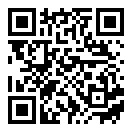Writers:
✍️ Ebadollah / Level 4 at the Seminary of Qom
Pages:
45-55
Receive Date: 2026/02/04
Accept Date: 2026/02/04
Abstract:
Abstract
Suffering or hardship, which is among the grave consequences of Adam's rebellion, is referred to as “Fatashqa” in the Holy Qur’an, “al- Taeb” in the Arabic Torah, “sorrow” in the English Torah and “toil “in some translations. The common aspect of all these interpretations is suffering and hardship. This consequence is mentioned in verses 117, 118 and 119 of Al-Taha chapter, and in parts 17, 18, and 19 of the third chapter of The Book of Genesis, which have some commonalities and differences. Referring to the Holy Quran and the Torah, and based on reliable sources, this paper studies the meaning and interpretation of suffering and hardship, those who suffer, and their relationship with eating from the banned tree. It also discusses their commonalities, differences and advantages. The result of this research indicates that the interpretations used in the Holy Qur'an are very beautiful and accurate, and aim at conveying a message; in particular, the phrase “Fatashqa” along with the explanations surrounding it, interprets the phrase "for then you will of the unjust" which is among important issues in the infallibility of the prophets. Also, the commonalities of the two books justifies the confirmation of the Torah by the Quran.
چکیده و کلیدواژه فارسی (Persian)
Title :واکاوی «فتشقی» بر اساس آیات سورهی مبارکه طه و فقراتی از باب سوم سفر پیدایش
Abstract:
رنج و مشقت از پیامدهای ناگوار عصیان حضرت آدم علیه السلام است که در قرآن کریم، با عبارت «فتشقی» و در تورات عربی «التعب» و در تورات انگلیسی «sorrow» و در برخی از ترجمه ها از آن، به «toil» یاد می کنند که وجه مشترک همه موارد، رنج و مشقت و سختی است. این پیامد در آیات 117، 118و119 سوره «طه» و در فقرات 17، 18و19 باب سوم «سفر پیدایش» آمده و در آنها وجوه مشترک و متفاوتی وجود دارد. این مقاله، در دو بخش قرآن کریم و تورات به مفهوم شناسی، تفسیر رنج و مشقت، مخاطب رنج و مشقت و رابطه میان آن و خوردن از درخت ممنوعه، با استناد به منابع معتبر خواهد پرداخت. اشتراکات و اختلافات و امتیازات آنها را بیان خواهد کرد. نتیجه برآمده از این پژوهش، گویای این است که تعابیر به کاررفته در قرآن کریم، بسیار زیبا و دقیق و برای رساندن پیامی است؛ به ویژه اینکه عبارت «فتشقی»، همراه با توضیحات پیرامون آن تفسیرکننده «فَتَکُونَا مِنَ الظَّالِمِینَ» هست که یکی از مباحث عمیق در عصمت انبیاء است. همچنین اشتراکات دو کتاب، توجیه کننده تصدیق تورات توسط قرآن است.
References:
- کتاب مقدس، بيتا، ترجمة دكتر رابرت بروس، بيجا، انتشارات ایلام.
- آلوسی سیدمحمود، 1415ق، روحالمعاني، تحقيق على عبدالبارى عطيه، بيروت، دارالكتب العلميه.
- ابنمنظور محمدبن مكرم، 1414ق، لسانالعرب، چ سوم بيروت، دار صادر.
- ار. سی. هووآرد، 2006، خیمهها، معابد و قصرها، ترجمة افشین لطیفزاده، انگلستان، انتشارات ایلام.
- بيضاوى، عبداللهبن عمر، 1418ق، أنوار التنزيل و أسرار التأويل، تحقيق محمدعبدالرحمن مرعشى، بيروت، دار احياء التراث العربي.
- ثعلبى نيشابورى، ابواسحاق احمدبن ابراهيم، 1422ق، الكشف و البيان عن تفسير القرآن، بيروت، دار إحياء التراث العربي.
- جوادی آملی، عبدالله، 1388، تفسير تسنيم، چ سوم، قم، اسراء.
- راغب اصفهانى، حسينبن محمد، 1416ق، معجم المفردات في الفاظ القرآن، بيروت، دارالعلم.
- زمخشرى محمودبن عمر، 1407ق، الكشاف عن حقائق غوامض التنزيل، چ سوم، بيروت، دار الكتاب العربي.
- سورآبادي، ابوبكر عتيقبن محمد، 1380، تفسير سورآبادى، تهران، فرهنگ نشر نو.
- سیوطی، جلالالدين، 1416ق، تفسیر الجلالین، بيروت، مؤسسة النور للمطبوعات.
- السنن القویم فی تفسیر العهد القدیم (مبنی علی آراء افاضل اللاهوتیین)، 1973م، مجمع الکنائس فی الشرق الادنی، بیروت.
- شريف لاهيجى، محمد بن على، 1373، تفسير شريف لاهيجى، تحقيق ميرجلالالدين حسينى ارموى، تهران، داد.
- صدرالمتالهين، 1366، تفسير القرآن الكريم، تحقيق محمد خواجوي، چ دوم، قم، بيدار.
- صافى، محمودبن عبدالرحيم، 1418ق، الجدول في إعراب القرآن، بيروت، دارالرشيد.
- طنطاوى، سيدمحمد، بيتا، التفسير الوسيط للقرآن الكريم، بيجا، بينا.
- طبرسى، فضلبن حسن، 1376، مجمع البيان فى تفسير القرآن، چ سوم، تهران، ناصر خسرو.
- طباطبائي، سيدمحمدحسين، 1417ق، الميزان فى تفسير القرآن، چ پنجم، قم، جامعة مدرسين.
- طريحى، فخرالدين، 1375، مجمعالبحرين، تحقيق سيداحمد حسينى، چ سوم، تهران، كتابفروشى مرتضوى.
- فخررازي، محمدبن عمر، 1406ق، مفاتيح الغيب، چ سوم، بيروت، دار احياء التراث العربي.
- قرطبى، محمدبن احمد، 1360، الجامع لاحکام القرآن، تهران، ناصر خسرو.
- الکتاب المقدس (و قد ترجم من اللغات الاصلیه)، دارالکتاب المقدس فی الشرق الاوسط.
- الکتاب المقدس ترجمه العالم الجدید، (Watch tower bible and tract society of new York inc brooklyn new York” U.S.A 2004)
- مصطفوى حسن، 1340، التحقيق في کلمات القرآن الكريم، تهران، بنگاه ترجمه و نشر کتاب.
- مکدونالد، ویلیام، 1995، تفسیر کتاب مقدس براي ایمانداران،Nashville, Thomas Nelson publishers".
- لجنة التحریر، بيتا، التفسیر التطبیقی للکتاب المقدس، قاهره، دارالکتاب المقدس.
- نيشابورى، نظامالدين حسنبن محمد، 1416ق، تفسير غرائب القرآن و رغائب الفرقان، تحقيق زكريا عميرات، بيروت، دار الكتب العلمية.
- The Holy Bible authorized version or king james version.
Cite this article:
RIS
Mendeley
BibTeX
APA
MLA
HARVARD
VANCOUVER
APA | MLA | HARVARD | VANCOUVER
, Ebadollah, Baghbani Arani , Javad.(2026) The Study of "Fatashqa"Based on the Holy Verses of Al-Taha and Parts of the Third Chapter of the Book of Genesis. Ma`rifat-e Adyan, 9(2), 45-55
APA | MLA | HARVARD | VANCOUVER
Ebadollah ; Javad Baghbani Arani ."The Study of "Fatashqa"Based on the Holy Verses of Al-Taha and Parts of the Third Chapter of the Book of Genesis". Ma`rifat-e Adyan, 9, 2, 2026, 45-55
APA | MLA | HARVARD | VANCOUVER
, E, Baghbani Arani , J.(2026) 'The Study of "Fatashqa"Based on the Holy Verses of Al-Taha and Parts of the Third Chapter of the Book of Genesis', Ma`rifat-e Adyan, 9(2), pp. 45-55
APA | MLA | HARVARD | VANCOUVER
, E, Baghbani Arani , J. The Study of "Fatashqa"Based on the Holy Verses of Al-Taha and Parts of the Third Chapter of the Book of Genesis. Ma`rifat-e Adyan, 2026; 9(2): 45-55




